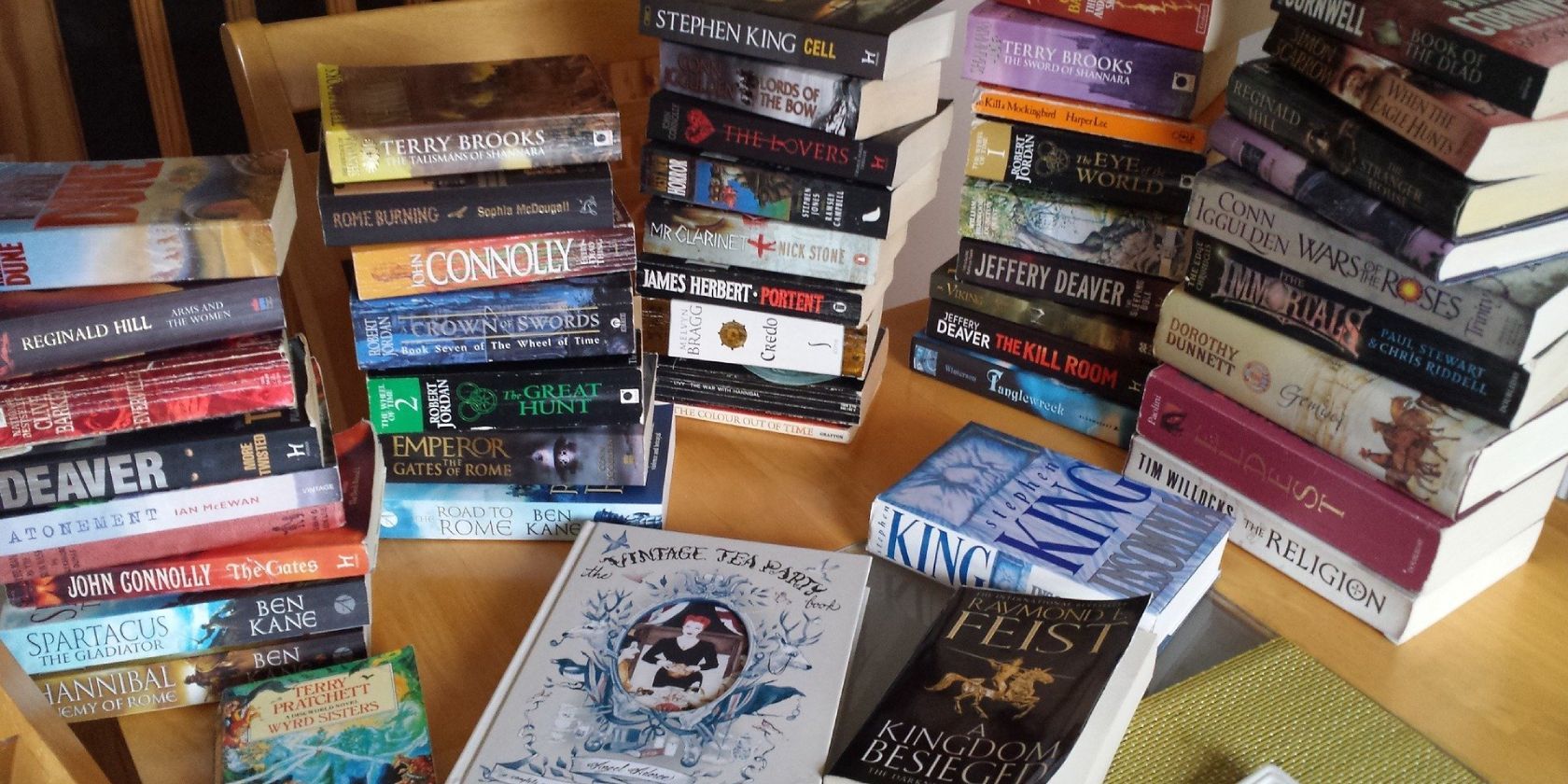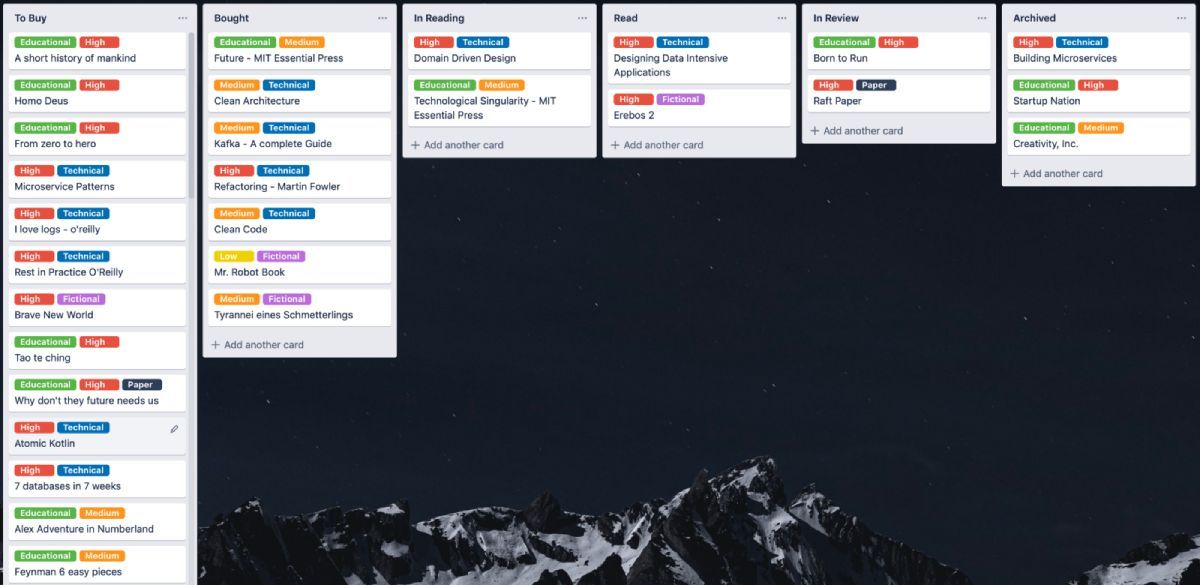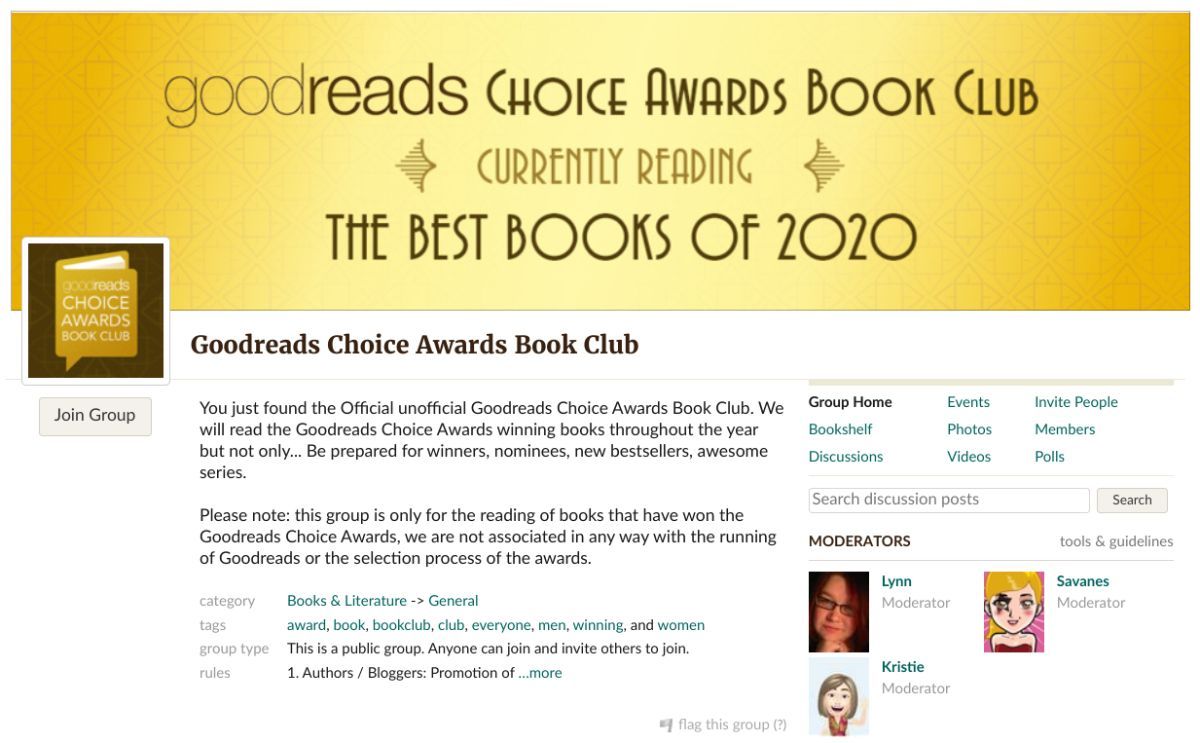One of the most popular new year's resolutions among people across the world is to read more books. These apps and sites will teach you how to make reading a habit.
Reading books is the kind of self-improvement activity that we know is good for us, but we never really make time for. There's some fatigue involved in that because with social media and the constant barrage of news, we are already reading more words than we ever did in the past. But books offer a different type of growth for our brains. It's not easy, but it's worth the time and effort to develop a habit of reading more books.
1. Readminder (Android, iOS): Track Books, Get Daily Reminders
An article by the Harvard Business Review suggests setting a schedule to read. The biggest issue in taking up the habit of reading is willpower, as you have to tell your brain to stop what you're doing and start reading a book. Instead, taking away willpower and turning it into a daily scheduled activity will help you read more, some experts say.
Readminder is an excellent and simple way to put this into practice. Add books to the app, apply a category, and set a Start Date for the book. While you read the book, take photos of your favorite quotes to add to the app. Readminder tracks what you read and how long it took, generating monthly charts and trends.
These quotes will become your reminders. Set a reminder that coincides with your daily reading schedule's start time. The quote is a nice way to know why you enjoy reading and helps you better digest what your eyes devour. In the first few days, the quotes will naturally be less. But if you manage to read two or three books in the first month, you'll find a lot more serendipitous quotes to egg you on to read more.
Download: Readminder for Android | iOS (Free)
You might also want to check out Bookly, which has come a long way since we first talked about it as one of the must-have apps for Kindle owners. It's an excellent app like Readminder, with many more features. But since it's a freemium app, many of the features are locked behind a paywall.
2. Serial Reader (Android, iOS): Read Classic Books in 20 Minutes a Day
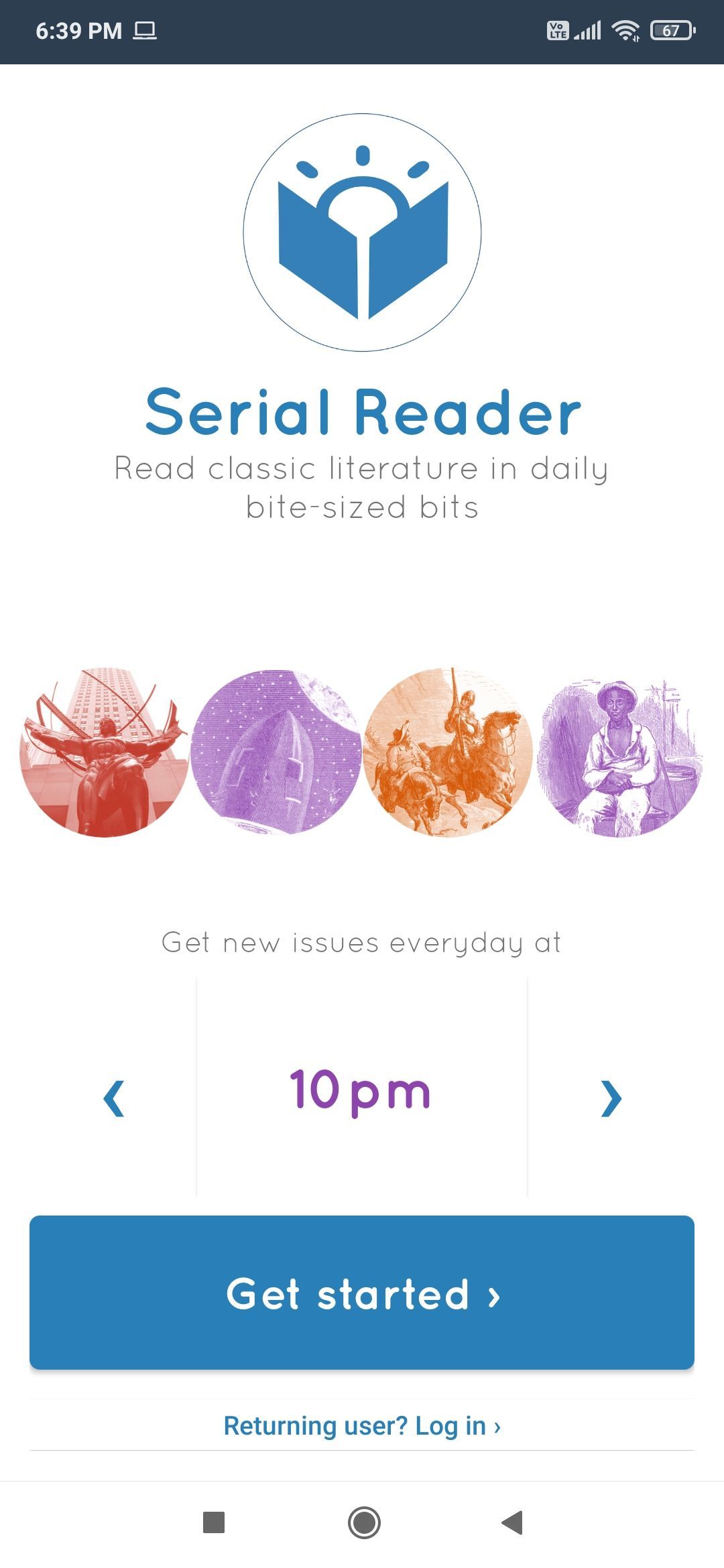
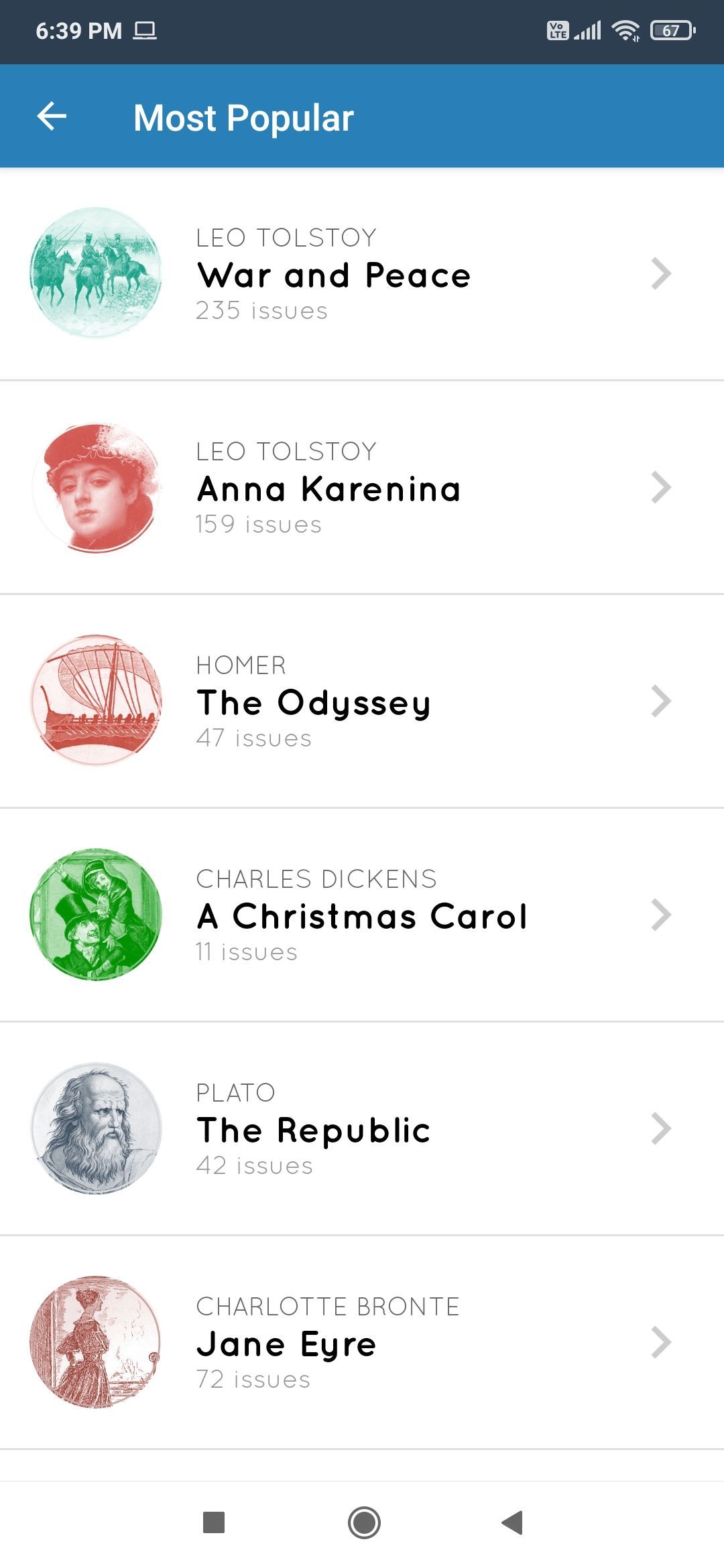
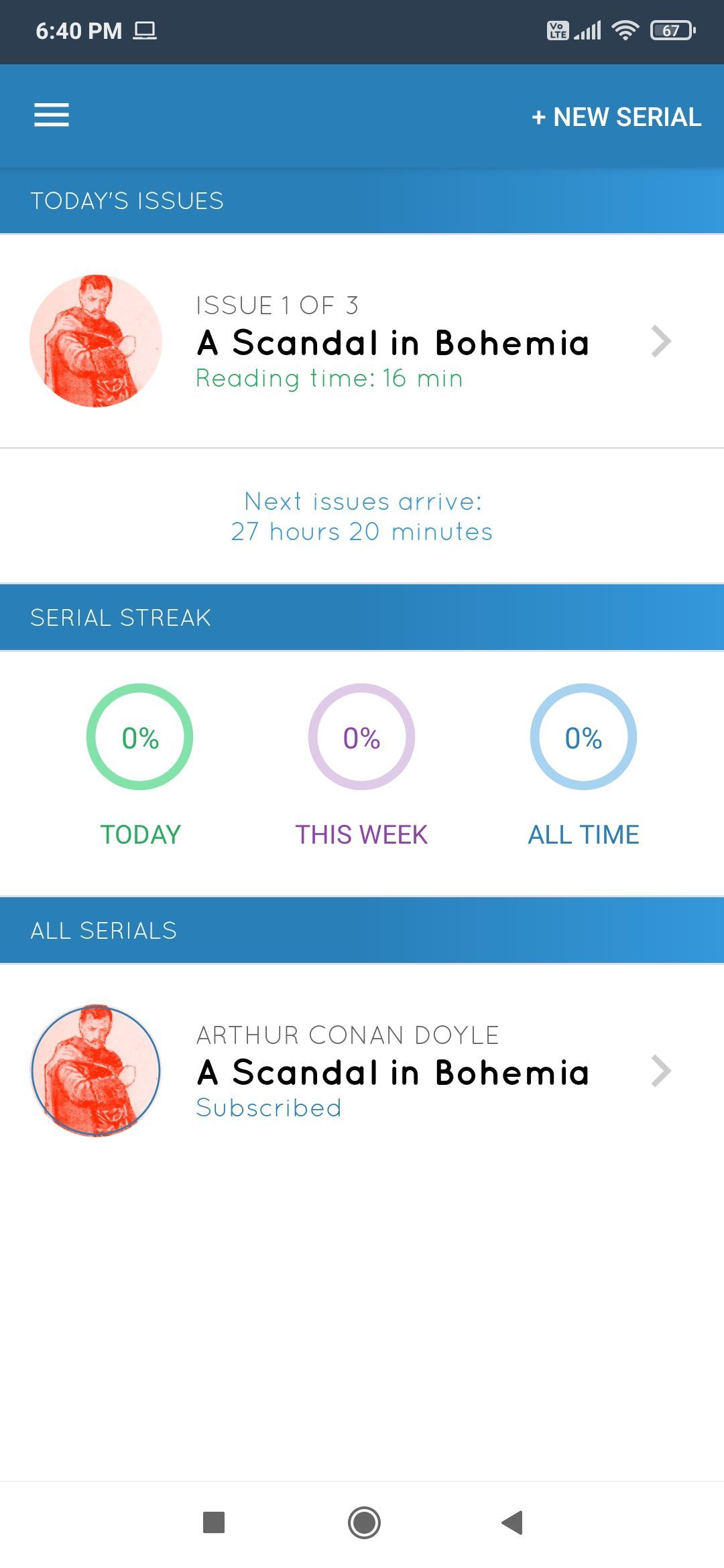
Serial Reader is an incredible app that brings in the concept of serialized reading to read more books. The idea is to break books down into smaller parts called "issues", which the average reader would take less than 20 minutes to read. The app presents these issues every day so you can create a habit of reading.
When you set up the app, Serial Reader will ask what time you would like the reminder. Unfortunately, the settings allow only for full hours, which is weird because setting a custom time for a reminder should be easy. If you want a reminder for 10:40 so you can finish reading by 11 and turn off the lights, that's not an option in Serial Reader.
The book library contains free classic ebooks, such as those that you'll find on Project Gutenberg. For every book, you'll see how many issues it turns into, and a reading time estimate for each issue. You can skip an issue by adding it to the Read Later list, and even read two books at a time, but it's advisable not to do that when you're trying to create a habit of reading more.
Serial Reader is primed to help you create a habit of reading. For example, it tracks your streak of daily reading to ensure you don't break the chain. It also includes statistics for how much you've read and gives you badges to celebrate accomplishments.
Download: Serial Reader for Android | iOS (Free)
3. Nick Wignall's 19 Techniques (Web): Best Advice to Develop a Reading Habit
A quick web search for "how to read more" will show you that the internet has developed way too much time discussing this topic. The advice pours in from anyone and everyone, from librarians or researchers to random tips from average folks on social media. Nick Wignall's article stands out as an excellent compilation of all these recommendations.
Wignall promises 19 powerful techniques to build a reading habit, he touches upon several ideas both popular and unique. For example, he talks about applying the "to-go box method" of portion control for diets to creating a balance between watching TV and reading. Then there's the "commitment device" mind hack to get that little push once in a while.
Each of the 19 techniques is grounded in personal experience, scientific backing, or other expert advice. They're also all free and easy to implement in an average person's life. Plus, it has the added advantage that once you read this, you don't need to read other articles on the subject because it's just going to be repetitive.
4. How to Create a Reading Plan (Web): 3 Strategies to Read More in a Year
One of the most common pieces of advice to read more is to create a reading plan. But most of them offer only generic points without chalking out the intricacies of how to build one, or what's achievable and what isn't. We found a few articles that help you create a plan that'll work for you.
James Clear's advice that led to him reading 30 books a year is perfect for beginners. There are two fundamental pillars. You read 20 pages a day, and you have to do it first thing in the morning. That's about it, and Clear will clarify why the system works in his write-up.
Christoph Schnabl chose to make a Kanban board in Trello to create his reading plan. It's a bit geeky and perhaps not for everyone, but it might just be perfect for you. Schnabl also talks about trying other systems (like notes or queues) and why they didn't work for him.
India Reads created a reading plan for 2020 that anyone can adopt or adapt to their tastes. It has several nice ideas like giving each theme a month, reading sequels of series that you're already into, and giving a second chance to books you quit in the past.
5. Reddit Book Club or Goodreads Choice Awards (Web): Join an Online Book Club
Joining a book club is one of the best ways to get into the habit of reading regularly. It gives you a clear and actionable objective, a new book and a reason to read it, and accountability towards other people. These are all the hallmarks of setting a goal and sticking to it.
The Goodreads Choice Awards select winners annually, and there's a book club to read them all. Every month, the club picks four books across genres. You can choose to do them all, dividing one for each week, or start small with two for the month. It's a welcoming community that encourages new readers.
The largest online book club is probably the Reddit Book Club with over 110,000 members reading three books a month. It also helpfully breaks down the books by chapter, giving a deadline every few days for a chapter, so you can discuss it while you read rather than waiting till you finish it. It's a welcome change from usual clubs and gives you the chance to discuss theories and what's coming next just like waiting for the next episode of a TV series.
Of course, these are just two of the many free book clubs you can join online. You might want to try the world's largest ebook club or check out the best book review sites to find their clubs and shared reading sessions.
Read Whatever You Like and Quit Books Halfway
There are two mantras to make the habit of reading that most people overlook. When you say you should read more, you think that you should read more serious books or classics. Nope, says Psyche Guides, read whatever you like because the focus is on building a habit of reading. You will give up trying if it feels like a grind at the very start. So even if it's pulp fiction, trashy romance, or children's books, it's absolutely fine to read what you like without judging yourself harshly. Remind yourself that this is a lifelong habit, you'll get to the good books later.
Another thing to remember is that it's okay to quit a book halfway if you don't like it. What's more important is to pick up another book and start reading. Again, the focus should be on reading and enjoying what you read, while going easy on yourself. That book you quit isn't going anywhere, you can always read it years later too.

